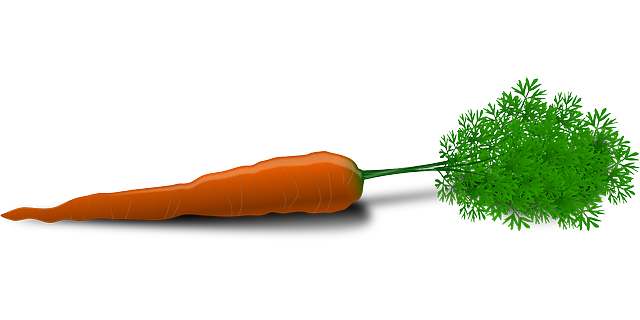Introduction
Vitamin A is an essential nutrient for the body. It’s needed for vision and reproduction, helps maintain healthy skin and protects against infections. Your body can’t make vitamin A on its own.
Vitamin A is important for normal vision, the immune system, and reproduction.
Vitamin A is a fat-soluble vitamin that plays an important role in vision, growth and development, reproduction, cell division and differentiation. It’s also required for the maintenance of healthy skin.
Vitamin A deficiency may lead to night blindness (a condition where you have difficulty seeing in dim light), dry eyes and hair loss. Vitamin A deficiency can occur if you don’t eat enough foods containing this nutrient or if your body cannot absorb it from food sources properly.
Vitamin A protects the surface of the eye (cornea)
The large amount of vitamin A in the retina is essential for maintaining vision. Retinal, a derivative of vitamin A, is used by photoreceptor cells to detect light and signal the brain via the optic nerve. It also helps keep these cells healthy and functioning properly. The cornea is another site where this nutrient may be helpful in protecting against dry eye syndrome because it prevents water evaporation from inside the eye.
Vitamin A is also used for skin disorders including acne, eczema, psoriasis, cold sores, wounds, burns, sunburn, keratosis pilaris, ichthyosis vulgaris, xerosis cutis and other conditions
They also use vitamin A for skin disorders including acne, eczema, psoriasis, cold sores, wounds, burns and sunburn.
- Acne: We can apply topically Vitamin A to the skin as an ointment or cream to treat acne. It’s important to use a sunscreen after you apply vitamin A because it increases your risk of developing a rash if you’re exposed to sunlight while using it.
- Xerosis cutis: Vitamin A help prevent dryness of the skin and may reduce wrinkles by promoting collagen production in cell structures that support the outer layer of your skin (epidermis). This makes it useful for treating conditions like xerosis cutis (dry scaly patches on elbows) or other types of scaling caused by low humidity levels in some climates where people live. Ichthyosiform dermatitis: Vitamin A might help treat ichthyosis vulgaris (commonly known as fish scale disease), according to early research findings. Keratosis pilaris: Another common condition called keratosis pilaris involves minor bumps on your upper arms caused by keratin buildup within hair follicles. While there’s no cure yet for this condition, researchers have found that applying retinol may help improve symptoms.
Other uses include preventing cervical cancer and for deafness due to inner ear damage in children
- Other uses of vitamin A include preventing cervical cancer and for deafness due to inner ear damage in children.
- Vitamin A is important for normal vision, the immune system, and reproduction.
- Vitamin A is also used for skin disorders including acne, eczema, psoriasis, cold sores, wounds, burns and sunburn.
There are two different types of vitamin A that are important in human nutrition. All-trans retinol is an alcohol (an aliphatic alcohol) and all-trans retinal is an aldehyde
The two kinds of vitamin A are very different in their chemical structure. All-trans retinol is an alcohol (an aliphatic alcohol) and all-trans retinal is an aldehyde. The conversion between these forms occurs in the liver, and it’s important to note that the structure of these molecules will affect whether they will be used as a food source by your body or stored as fat reserves for later use.
The form of vitamin A found in these foods can be converted into other forms within your body; this process is called metabolism. For example, if you eat carrots or sweet potatoes that contain high levels of beta-carotene (a plant pigment), this can be converted into retinol in order to utilize its benefits!
PROVITAMIN A – Vegan Vitamin A
It’s essentially vegan Vitamin A. Rather than being found in animal products, Provitamin A is obtained from plant-based foods containing Vitamin A.
Preformed Vitamin A – Animal Source Vitamin A
Preformed Vitamin A typically enters our diets in the form of eggs, cheese, milk, and yogurt. Intriguingly, though, we aren’t able to manage how much Preformed Vitamin A is able to be digested, and it can be dangerous in larger quantities than plant-based Vitamin A.
Too much vitamin A from non vegan forms can be unhealthy, so you may want to choose plant-based varieties for your vitamin A.
The highest sources of vitamin A are animal products like fish, liver, dairy and eggs. You might also get some from fortified foods like breakfast cereals and dairy products.
- Eggs: One egg is about 3.2 micrograms (mcg) of vitamin A. Eat the whole egg for more vitamins and minerals, especially choline and selenium.
- Dairy products: Milk, yogurt and cheese are all sources of vitamin A.
- Cod liver oil: Vitamin A is also found in cod liver oil. One tablespoon contains up to 1,300 mcg—more than twice what you need in a day! It comes with plenty of other things too though, so keep in mind that excessive amounts can increase your risk for birth defects during pregnancy, so talk with your doctor before taking any supplements.
Plants contain vitamin A, but in smaller quantities than animal foods. Good plant sources include dark green leafy vegetables, yellow peppers and sweet potatoes.
If you don’t eat any animal products, then it’s important to make sure that you’re getting enough of all the nutrients your body needs by eating a wide variety of plant -based foods from different food groups every day.
Vegan Sources of vitamin A Include:
- Carrots
- Sweet potatoes
- Dried apricots
- Kale
- Cantaloupe
- Butternut squash
- Spinach
- Red peppers
- Papaya
- Tomatoes
Conclusion
It is important to get enough vitamin A in your diet, but it can also be helpful for you to know when to seek medical attention if you experience symptoms of a deficiency or over . If you’re concerned about having enough vitamin A in your diet or if you’re worried about how it interacts with other supplements or medications, talk with your doctor about questions.




